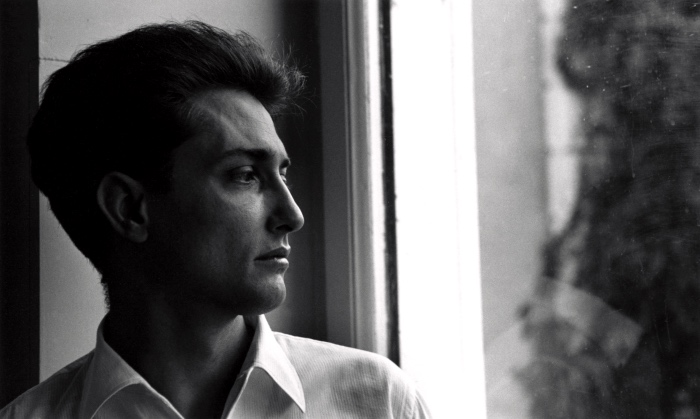
Tancredi Parmeggiani, 1955. Foto Arnold Newman / Getty Images
TANCREDI: MY WEAPON AGAINST RHE ATOM BOMB IS A BLADE OF GRASS
Tancredi. During her long life dedicated to art Peggy Guggenheim placed under contract only two artists: the American Jackson Pollock and the Italian Tancredi Parmeggiani.
The first one became famous all over the world, was a proponent of the abstract expressionism, and the inventor of the technique of drip painting which characterizes his most important works. Tancredi, instead, is an artist who during his life didn’t manage to stand out as he deserved.
The Peggy Guggenheim Collection in Venice dedicates to Tancredi Parmeggiani a beautiful exhibition running from November 12th 2016 to March 13th 2017.
I saw this show, and it allowed me to understand the artworks created by this artist I, frankly, didn’t know, but it also gave me the chance to examine in depth a new aspect of the life of Peggy Guggenheim.
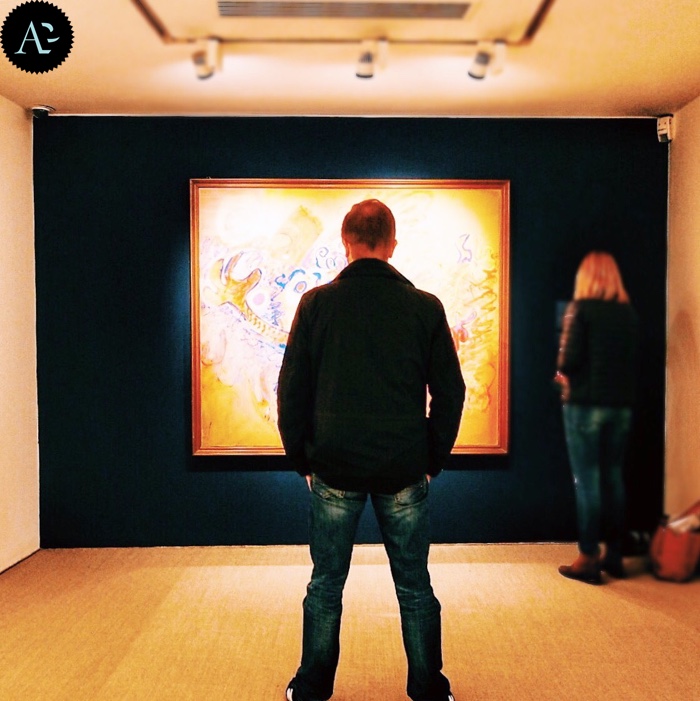
Peggy Guggenheim supported and promoted Tancredi during his stay in Venice.
Actually, she considered him to be the most important Italian artist after the Futurists, and for this reason she contracted with him, and gave him a studio in the basement of Palazzo Venier dei Leoni in Venice.
Peggy helped him to express himself completely, and offered his works to the most important museums in the USA.
The most extraordinary feature of this exhibition is that not only you can retrace Tancredi’s story through his works, but you can also admire works of art that are now housed in the U.S. museums such as the MoMA, the Wadsworth Atheneum in Hartford, the Brooklyn Museum, in addition to the works and drawings still today in the Peggy Guggenheim Collection.
The exhibition arranged in Venice is a sequence of works that seem to be a symphony of colours, evanescent paintings, as light as a breath of spring air.
You immediately understand that the encounter with Peggy Guggenheim allowed Tancredi to study in depth Pollock’s works that are still on exhibition in the museum created by Peggy in Venice, and even Tancredi’s tragic end (he committed suicide in the Tiber River at the age of only 37 after a series of admissions to psychiatric hospitals) links his life with Jackson Pollock’s anguished existence.
In his diaries Tancredi wrote “My weapon against the atomic bomb is a blade of grass”, and that’s one of the several reflections upon violence and mankind he wrote down.
Those considerations became a triptych which is on exhibition and in which he expresses the tragedy a nuclear catastrophe could cause.
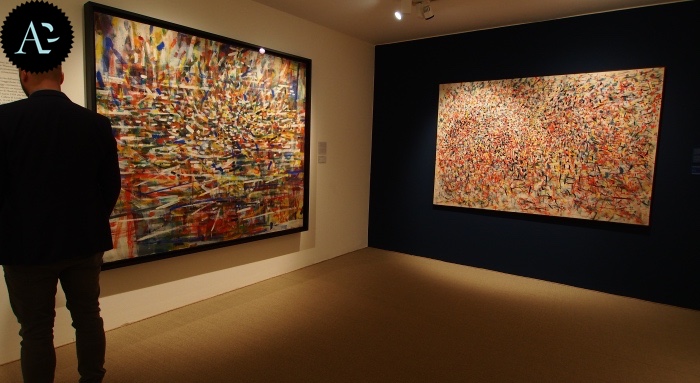
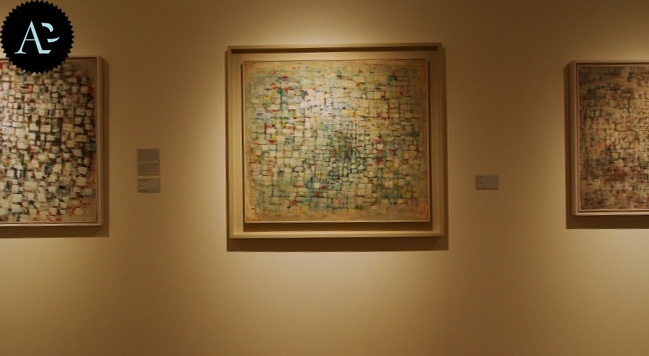
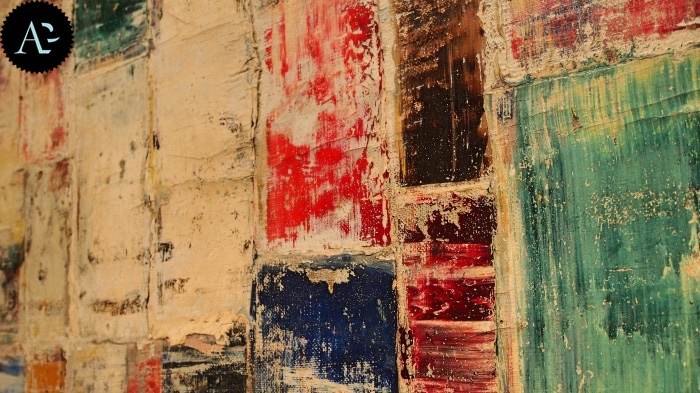
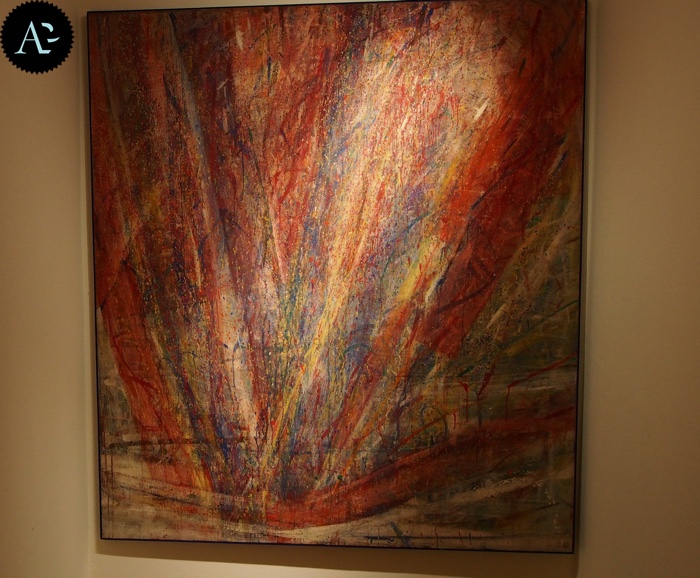
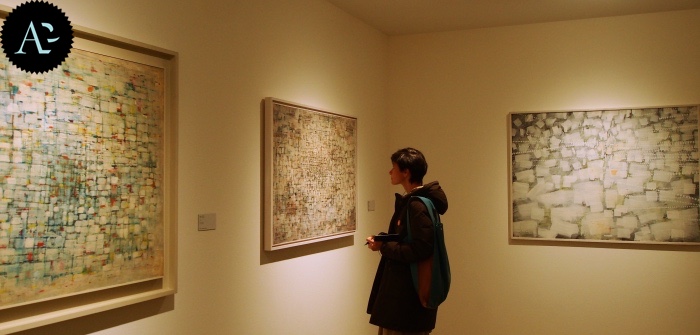
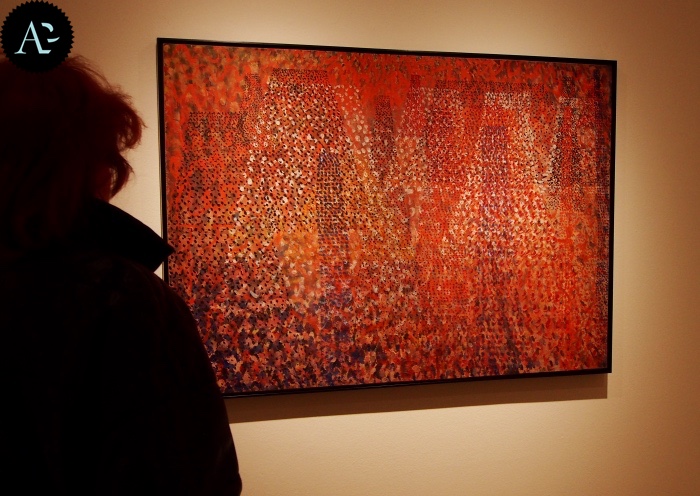
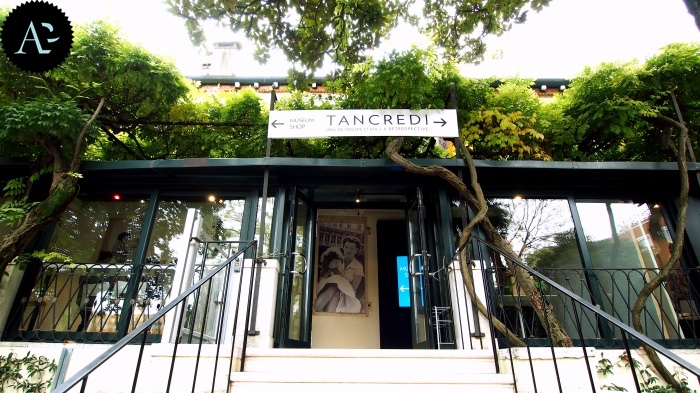
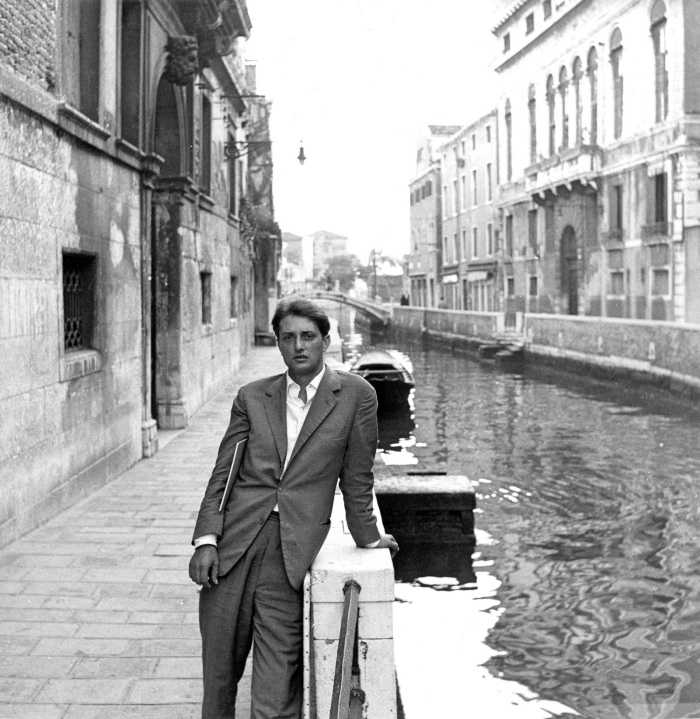
Tancredi Parmeggiani a Venezia, 1955-1956. Venezia, Fondazione Giorgio Cini, Istituto di Storia dell’Arte, Fondo Cardazzo
INFO
My Weapon Against the Atom Bomb is a Blade of Grass.
Tancredi. A Retrospective
12 November 2016 – 13 March 2017
Peggy Guggenheim Collection, Venice

